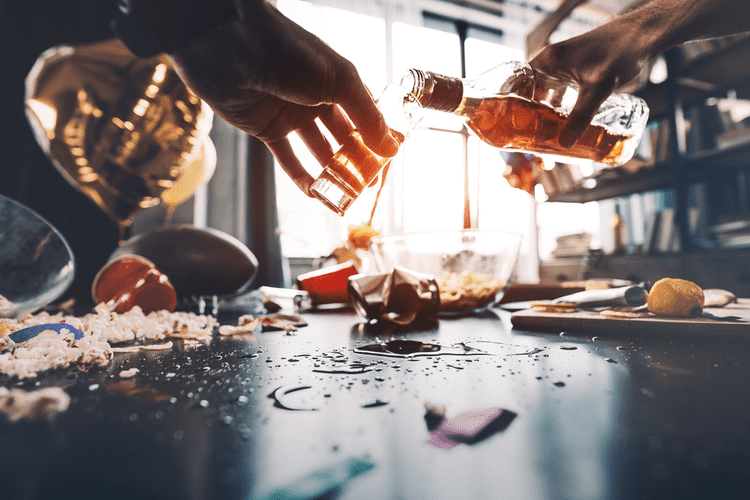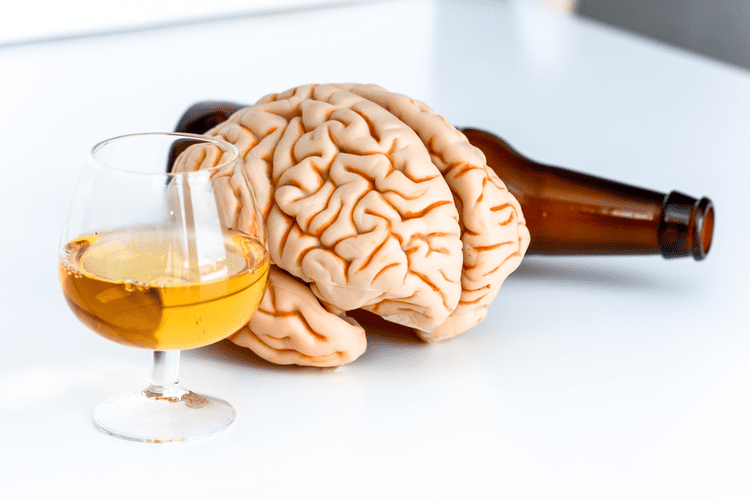Content
Until that healing is complete, you should know that your brain is going to fight against you as you learn how to stop drinking permanently. Now that you have quit drinking alcohol, you have all this time on your hands. You may even be surprised at how much time alcohol took up in your day.
Alcohol recovery is a process—one that often involves setbacks. A drinking relapse doesn’t mean you’re a failure or that you’ll never be able to reach your goal. Each drinking relapse is an opportunity to learn and recommit to sobriety, so you’ll be less likely to relapse in the future. Your chances of staying sober improve if you are participating in a support group like Alcoholics Anonymous, have a sponsor, or are involved in therapy or an outpatient treatment program. Lean on close friends and family – Having the support of friends and family members is an invaluable asset in recovery.
Tinnitus: Ringing Or Humming In Your Ears? Sound Therapy Is One Option
Our website is not intended to be a substitute for professional medical advice, diagnosis, or treatment. There’s also a hypnotherapy section at the end – and absolutely no role-play or group exercises, don’t worry! Allen Carr is also the alcohol recovery tips author of the bestseller, The Easyway to Give Up Smoking. It also makes you question what benefits, if any, you’re getting from alcohol – so you no longer feel like you’re missing out on anything, because you decided to stop drinking.

This information does not replace the advice of a doctor. Healthwise, Incorporated, disclaims any warranty or liability for your use of this information. Your use of this information means that you agree to the Terms of Use. Self-Recovery is a fee-based program, calculated by course. Loosid is best if you are worried about losing the social aspect that you connect with alcohol. Elizabeth Brownfield is a freelance writer, editor, and researcher who specializes in food, travel, home, and lifestyle content.
What Happens To Your Body When You Stop Drinking?
Moreover, substituting one kind of beverage for another does not help you taper off alcohol if you consume the same number of standard drinks as you usually have. For example, one 12-ounce can of beer contains the same amount of alcohol as a 5-ounce glass of wine or a mixed drink containing 1.5 ounces of alcohol. Others try to taper off by changing from the alcoholic beverage Alcohol detoxification that they prefer to one that they do not like. For example, they may try to switch from a beverage that they like to one they don’t . That rationale is that they are less likely to drink as much of the beverage they do not like. Buddy T is an anonymous writer and founding member of the Online Al-Anon Outreach Committee with decades of experience writing about alcoholism.
- There are several reasons that moderation may work better for an individual than complete abstinence.
- Some of such changes include getting rid of toxic friends, rearranging your surroundings to encourage healthy living, and learning more healthy life skills to improve your quality of life.
- Support can come from family members, friends, counselors, other recovering alcoholics, your healthcare providers, and people from your faith community.
- You might reach for alcohol when you’re really just thirsty, says Crews.
- This might be one of the most overlooked challenges of how to stop drinking permanently.
As you change your drinking, it’s normal and common to have urges or a craving for alcohol. The words „urge” and „craving” refer to a broad range of thoughts, physical sensations, or emotions that tempt you to drink, even though you have at least some desire not to.
Learn How To Wean Off Alcohol
Having the proper relapse prevention support in place can help you achieve Recovery for Life. Treatment programs teach members how to prevent relapse and empower them to remain in recovery. An essential part of preventing relapse is understanding how it happens. This allows you to recognize the signs of relapse and get help before it happens. In short, a relapse begins with a high-risk situation which is followed by inadequate coping responses. For this reason, continuing relapse prevention therapy is your best chance at maintaining your recovery.

If you need alcohol treatment while practicing physical distancing, there are several professionally led treatment and mutual-support group options available to you. Show them that you are proud of them and will support them throughout their journey, including getting treatment or attending meetings and support groups.
Dont Fight The Alcohol Cravings, Ride Them Out
You can track time and money saved on the app, as well as share your successes and new chips on social media. Your sobriety clock can also be shared with your accountability partner, so they can check in on you and see how long you have been clean. Around 86.4 percent of adults in the United States have drunk alcohol at some point in their lifetime, according to the 2015 National Survey on Drug Use and Health. A score between 8 and 18 indicates you are drinking above relatively healthy levels. Live a Balanced Life– SMART give members skills to help balance both short and long-term goals, pleasures and needs that were once out of balance due to alcohol or drug misuse.
Why it’s still so hard not to drink – USA TODAY
Why it’s still so hard not to drink.
Posted: Tue, 12 Oct 2021 07:00:00 GMT [source]
Alcohol withdrawal symptoms can shift quickly and violently – you can experience minor symptoms to extremely severe side effects in a matter of hours. There are many alcohol treatment programs that focus on helping individuals overcome drinking problems, no matter how minor or how serious. Specialized rehab facilities offer many benefits to those struggling with alcohol addiction. For example, treatment providers will be able to help alleviate some of the most painful of withdrawal symptoms, as well as provide 24/7 support through the entire recovery process. During an alcohol addiction treatment at an alcohol treatment facility, patients are helped with identifying their triggers and the reasons for their heavy drinking habits. They also provide you with tools and skills to help manage those triggers to avoid a relapse. These relapse prevention skills come into great use once you leave the safety of rehab care.
Women For Sobriety Wfs
According to the U.S Department of Veterans Affairs , participating in mutual self-help groups can significantly increase the effectiveness of addiction treatment programs. About half of all people who are dependent on alcohol will suffer from withdrawal symptoms when they stop drinking. The New England Journal of Medicine warns that 3-5 percent of individuals will struggle with grand mal convulsions, delirium , or both. This severe form of alcohol withdrawal is called delirium tremens, or DTs.

It also makes you more impulsive, and less able to resist the fries and other temptations on the menu. So when you stay away from alcohol, the number on your scale may well start moving down.
While the benefits of herbs in breaking the alcohol habit vary from person to person, they can be highly beneficial and natural ways to stop alcohol cravings. We have all tried home remedies before going to the doctor. A steamy shower to clear congestion or the old chicken soup fixes everything remedy. People struggling with alcohol use disorder may also try home remedies to stop drinking alcohol. For this, it is important to focus on a balanced healthy diet and stay well hydrated.

Many people are hesitant to quit drinking because of the thought of experiencing uncomfortable withdrawal symptoms is scary. However, it’s important to note that alcohol addiction treatment professionals can provide prescription medications to help relieve pain. By reducing withdrawal symptoms, you will be able to focus on recovery and getting better. Surrounding yourself with friends and family who support your recovery journey can be helpful. It can motivate you to remain sober and give you the love and support you need to overcome alcohol dependence and lead a more productive and healthy lifestyle.
Abusing Alcohol
It’s clear that alcohol, and heavy drinking in particular, can up your chances of several types of cancers, including in your esophagus , mouth, throat, and breast. What’s less clear is if quitting alcohol lowers your chances for cancer and, if so, how long it might take. Some studies suggest potential benefits, but scientists don’t know for sure. Enjoying alcohol socially in reasonable amounts can boost your mood and help you bond with others.
